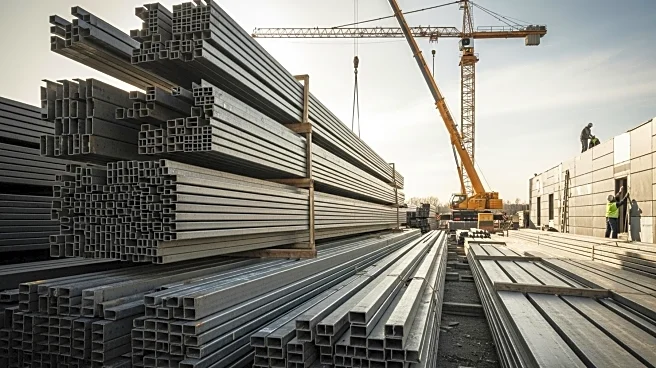What's Happening?
The construction industry is experiencing slow progress in addressing unsafe cladding on high-rise residential buildings in England, with remediation work yet to begin on over half of the identified structures. Despite stagnant market conditions, consultancy Arcadis predicts an increase in building tender prices by 2-4% this year. Additionally, National Highways projects on the A12 and M6 are expected to drive structural steel spending over the next decade. Meanwhile, Northern Ireland's construction sector is projected to see a 75% growth in project starts by 2027, according to CIS data.
Why It's Important?
The slow pace of cladding remediation highlights ongoing safety concerns in the construction sector, potentially affecting public trust and regulatory scrutiny. The anticipated rise in tender prices could impact project costs and profitability, influencing investment decisions and contractor strategies. The focus on steel supplies for major infrastructure projects underscores the importance of resource management in the industry. Northern Ireland's projected growth suggests regional disparities in construction activity, which could affect economic development and employment opportunities.
What's Next?
The construction industry may face increased pressure to accelerate cladding remediation efforts, potentially leading to policy changes or additional funding. As tender prices rise, contractors might seek cost-effective solutions or negotiate terms to maintain competitiveness. The demand for steel in infrastructure projects could drive innovation in material sourcing and supply chain management. Northern Ireland's growth trajectory may attract investment and skilled labor, influencing regional development strategies.








